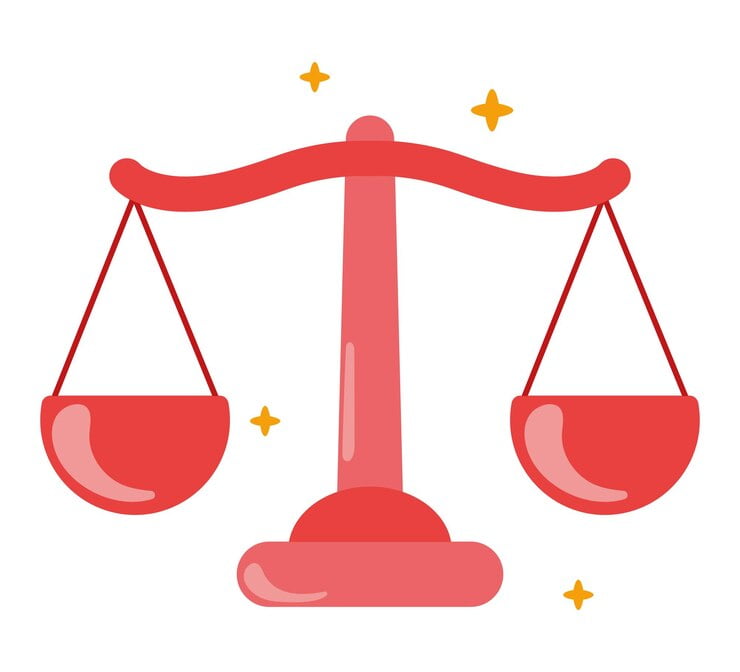Choosing between a job and a business depends on your preference for stability or independence. A job provides a steady income and benefits, while a business offers freedom and potential for higher earnings.
When deciding between a job and a business, it’s essential to consider various factors like financial security, work-life balance, and personal fulfillment. Opting for a job guarantees a stable income, fixed work hours, and benefits such as health insurance and retirement plans.
On the other hand, starting a business allows you to be your own boss and potentially earn more, but it also comes with greater financial risks and the need to manage all aspects of the business. Ultimately, the choice between a job and a business depends on your risk tolerance, aspirations, and lifestyle preferences. Both options have their own set of pros and cons, and it’s crucial to carefully evaluate your circumstances before making a decision.
Table of Contents
ToggleJob Stability
When it comes to choosing between a job and a business, one of the key factors to consider is job stability. Having a stable income and fixed working hours can influence our decision-making process. Let’s explore why job stability plays a crucial role in our career choices.
Reliable Income
One of the primary advantages of having a job is the reliable income it offers. Unlike entrepreneurship, where income fluctuates depending on various factors, a job provides a consistent stream of income. This stability allows individuals to plan their finances, meet their expenses, and ensure financial security.

Fixed Working Hours
Job stability is often associated with fixed working hours. Employees know when they need to be present at work and when they can anticipate their leisure time. This consistency in working hours provides a sense of routine and work-life balance.
In addition, fixed working hours allow individuals to plan their personal lives effectively. They can make commitments outside of work and have a clearer distinction between their professional and personal lives.
Overall, job stability can bring a certain level of reassurance and peace of mind. It eliminates the uncertainties associated with irregular income and unpredictable work schedules that entrepreneurs often face. However, it’s important to note that job stability might not be suitable for everyone and each individual’s circumstances and priorities may differ.
Potential For Growth
The potential for growth is an essential aspect to consider when deciding between a job and a business. In this section, we will explore the potential for career advancement and financial growth in both scenarios.

Promotions And Salary Increments
Many individuals seek upward mobility in their careers, desiring promotions and salary increments. In the context of traditional employment, these opportunities are often contingent upon favorable performance appraisals. Typically, promotions come with a salary increase, which is usually determined by the company’s policies and the employee’s abilities. On the other hand, in a business venture, one’s potential for growth largely depends on the success and expansion of the business. If the business flourishes, the owner has the independence to increase their earnings through various means, such as scaling the business or diversifying its services.
Opportunity For Career Advancement
In a job, the path to career advancement is somewhat structured, with defined roles, titles, and responsibilities. Advancement usually occurs through hierarchical promotions, which are primarily based on an employee’s performance, skills, and experience. In contrast, the opportunities for career advancement in business are more fluid. As the owner, one can continuously fight for expansion, diversification, and innovation. This provides entrepreneurs with the potential for significant career advancement, manifested in the form of company growth, market leadership, and industry influence.
Independence And Control
When deciding between a job and starting a business, it’s important to think about how much independence and control you want in your career. A job usually offers more stability and a steady income, but you have to follow your boss’s rules and company policies. Starting a business gives you the freedom to make your own decisions and create something unique, but it comes with risks and responsibilities. If you value having control over your work and enjoy taking risks, starting a business might be the better choice. However, if you prefer security and guidance, a job could be more suitable.

Flexibility In Decision-making
Running your business allows ultimate control over decisions without approval from others.
- You can pivot strategies quickly based on market trends.
- No need to adhere to rigid corporate policies.
Being Your Own Boss
Starting a business means you are the boss, determining the direction and making all decisions.
- You set your schedule and priorities.
- No need to report to a manager or follow a set hierarchy.
Financial Risk
When considering the choice between a job and a business, one important factor to analyze is the financial risk involved. Both options come with their own financial risks, but they differ in terms of income stability and investment requirements.

Steady Income Vs Variable Income
One of the key differences between having a job and owning a business is the predictability of income. With a job, you can expect a steady income that arrives on a regular basis, usually in the form of a salary. This can provide a sense of security and stability, knowing that you will receive a fixed amount of money each month.
On the other hand, starting a business typically involves a variable income. In the initial stages, it might take time before your business generates a stable revenue stream. There can be months when the income is higher than expected, while other months may bring lower revenues. This variability is a significant financial risk that entrepreneurs face, as it requires careful financial planning and budgeting to ensure the business’s sustainability.
Investment Requirements
Another aspect to consider when measuring the financial risk of a job versus a business is the investment required. Starting a business often demands enough upfront investments, which can include renting a workspace, purchasing equipment, and hiring employees. These costs can quickly add up, placing a significant financial burden on the business owner.

On the other hand, with a job, the financial investment is usually limited to education or specific training required for the role. The responsibility for providing the infrastructure and resources necessary for performing the job rests with the employer.
| Comparison Table – Job Vs Business: Financial Risk | ||
| Job | Business | |
| Income Stability | Steady | Variable |
| Investment Requirements | Minimal | Significant |
It’s important to note that the financial risks associated with a business can also bring rewards. If successful, a business has the potential to generate higher profits and financial independence. However, it’s crucial to carefully weigh these potential rewards against the risks involved.
Work-life Balance
Work-life balance is a crucial consideration when deciding between a job and starting your own business. Striking a balance between professional responsibilities and personal commitments is essential for maintaining a healthy and fulfilling lifestyle. Let’s explore the aspects of work-life balance in both structured work hours and time flexibility.

Structured Work Hours
Structured work hours are often associated with a traditional job. Typically, employees work fixed hours and stick to a predefined schedule set by their employers. This structured approach allows individuals to compartmentalize their work and personal lives, promoting better time management and stress reduction.
When working fixed hours, employees can plan their personal activities, such as family time, hobbies, or exercise, around their work schedule. This predictability enables individuals to allocate specific time slots for both work and personal life, helping to eliminate the feeling of being overwhelmed by either.
Having structured work hours also brings a healthy work-life separation. Employees can mentally disconnect from work when they leave the office, giving them the freedom to unwind and engage in activities outside of work. This separation plays a vital role in enhancing mental well-being and overall satisfaction.
Time Flexibility
One of the main advantages of starting your own business is the potential for greater time flexibility. Entrepreneurs have the independence to set their work schedules, allowing them to prioritize personal commitments whenever necessary.

Time flexibility enables individuals to achieve better work-life integration, as they can adjust their work hours according to their personal needs. This could mean taking breaks during the day to spend time with family or pursuing personal interests outside of traditional working hours.
However, it’s important to note that with time flexibility comes the responsibility of effective time management. Entrepreneurs need to create a healthy balance between business demands and personal commitments. Utilizing time management tools, setting clear boundaries, and practicing self-discipline are essential to maintaining work-life balance as a business owner.
Additionally, time flexibility allows entrepreneurs to react quickly to unexpected situations, ensuring they can attend to family emergencies or personal matters without having to seek permission or negotiate schedules with employers.
Work-life balance is a subjective concept that varies for each individual, depending on personal circumstances and priorities. Structured work hours provide stability and enable better planning, while time flexibility empowers individuals to customize their schedules and integrate work and personal life. Ultimately, the choice between a job and a business should consider which work-life balance approach best aligns with an individual’s values and desired lifestyle.
Ultimately, choosing between a job and starting a business depends on your goals and preferences. Consider the risks and rewards carefully before making a decision. Remember, both paths offer unique benefits and challenges. Follow your passion and stay committed to your chosen path for long-term success.








